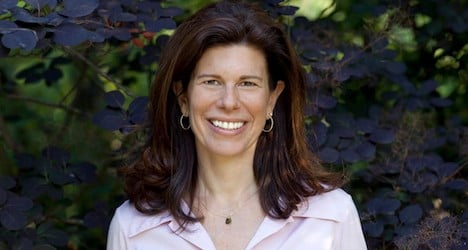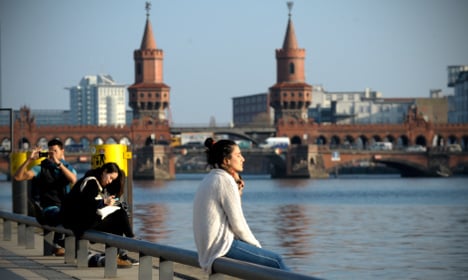Anne Korkeakivi never tires of the mountain view from the backyard of her home in Geneva.
The scenery is “quite literally awe-inspiring”, says the novelist, who was born and raised amid the towers of Manhattan.
Since Korkeakivi and her family moved to Switzerland almost five years — for her husband’s job as a human rights lawyer with the UN — she has not only been enjoying the country’s beauty.
She has also published her first novel: An Unexpected Guest (Little, Brown; 2012).
“I began the novel while living in France during the Iraq War,” says Korkeakivi, who has a background as a journalist and short story writer.
“It was a particularly complex time to be an American expatriate. While the novel is filled with the beauty of Paris, this more difficult face of being an expat is in there too.”
Set within the international diplomatic community in Paris a few months after the London Underground bombings, the novel has elements of a literary thriller.
It follows Clare Moorhouse as she arranges an official dinner crucial to her husband’s career as a high-ranking British diplomat.
“I was walking down the elegant Rue de Varenne in Paris, location of both the French Prime Minister’s residence and the Rodin museum, thinking about the political scandals headlining the news,” says Korkeakivi.
“The idea behind the novel popped into my head.”
Clare is guarding a serious secret that could ruin her and her husband: a central theme of the book is how people deal with their pasts.
But An Unexpected Guest also explores the “distinct” experience of life as an expat, Korkeakivi says, and particularly as an expat with dual-nationality children.
Korkeakivi, whose husband is Finnish and who has also lived in cities such as Strasbourg and Helsinki, admits that although people “back home” speak with envy about her lifestyle, there are difficult elements to it, too.
“My life feels very rich for having lived and spent time in many different places,” she says.
“But living as an expat isn’t like being on an endless holiday. One difficult element is the distance placed between yourself and friends and family, and also sometimes between yourself and your work colleagues.”
While living in Strasbourg, Korkeakivi couldn’t work as a journalist without excessive travelling.
To be at home with her small children, she took a freelance editing job to give herself time to develop her voice in fiction – something she had been stealing moments to write for years.
“Becoming a novelist has always been my goal,” she says.
“I gave myself a year and started with short stories. In the 12th month, I received my first short story acceptance for publication.”
The stories went on to run in publications including The Yale Review and The Atlantic. One of them, Folding Paper, is largely set in Geneva.
Meanwhile, Korkeakivi set to work on An Unexpected Guest, spending the best part of a year “getting to know” her heroine Clare, and then some nine months writing a complete first draft.
The book launched in America in April 2012. And Korkeakivi presented the novel – which has an international English edition – to Switzerland’s book lovers during a reading at Off The Shelf in Geneva the following month.
“There was lots of discussion: the audience deeply related to my book’s expat situation,” she says.
In May, she will participate in a similar event at Orell Füssli, The Bookshop in Zurich, in conjunction with the annual Zurich Writers Workshop, where she will be 2014’s fiction instructor.
She is also working on her next novel: “It will explore the effect of a historical event on an American family, and travel from southern California to Scotland’s Inner Hebrides,” she reveals.
No Switzerland? “I rarely write about where I physically am situated,” she replies.
Korkeakivi will be speaking and signing books at Orell Füssli, The Bookshop (Bahnhofstrasse 70, 8001 Zurich) on May 23rd (www.books.ch); Zurich Writers Workshop runs from May 24th – 25th (www.zurichwritersworkshop.com)
Chat to Anne Korkeakivi on Twitter @annekorkeakivi or find out more at www.annekorkeakivi.com




 Please whitelist us to continue reading.
Please whitelist us to continue reading.
Member comments